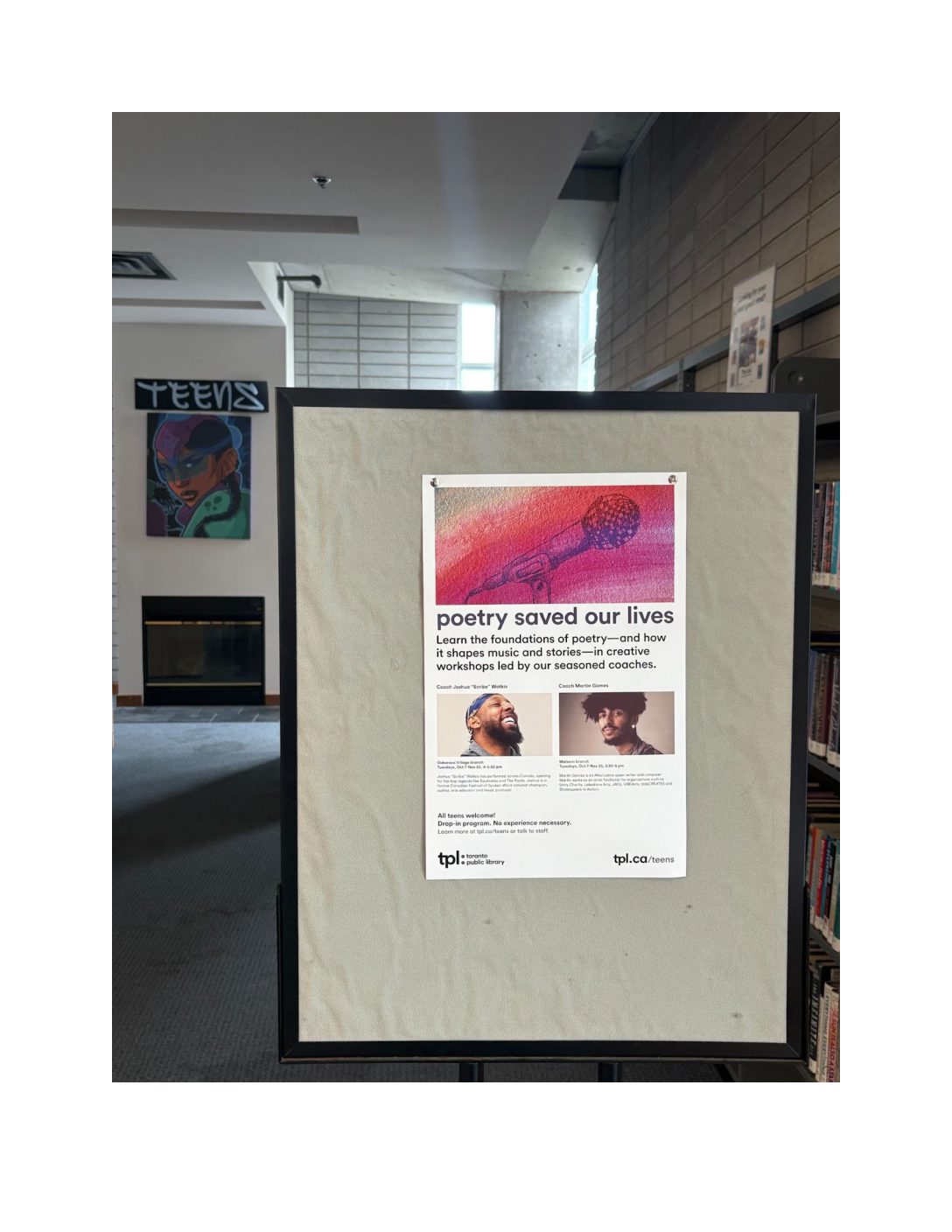Where some perform poetry in dim concert halls, others do so in brightly lit university classrooms. Yet regardless of the venue you attend, you’ll find that Toronto is awash with talented young voices.
In a time where the future of the arts is incredibly fraught, the cultivation of these young artists is more important than ever. One program that has held onto this ethos is Poetry Saved Our Lives (PSOL).
Established in 2014 as a legacy project out of the Pan Am/Parapan Youth Poetry Slam, PSOL is a recurring program that has taken place across a vast number of Toronto Public Library branches. Twice a year in an eight-week series of workshops, guest artists and featured poets coach youth ages 13- 19 through the foundations of poetry.
Hailey Mullock oversees the program at Oakwood Village Library and Arts Centre as the Branch Head. She claims their mission is to “provide access to arts- based programs that engage, inspire, and empower youth,” as well as “provide a safe space for creative self-expression, exploration, and allyship.”
Poetry as a medium has captured the attention of people across cultures and histories. It is one of the earliest modes of documented expression. To Joshua “Scribe” Watkis, a Canadian poet, rapper, and storyteller who leads the workshop at Oakwood Village, poetry is a lifeline. “It means access to expression and to empathy…It has saved my life, over and over and over again,” he attests.
Scribe claims poetry is not only expression but documentation. It “tells the truth about history long before the annals and textbooks do,” and is often “society’s first glimpse into an honest recounting of the present moment.”
Scribe is an award-winning artist, and staunchly dedicated to arts education. He expands on this idea of poetry as testimony when discussing the importance of teaching poetry, especially to youth. He claims that poetry allows youth autonomy and is a means “to own their voices and wield their expression in earnest.” Furthermore, poetry provides an opportunity for others to bear witness to their reality. “To hear their voices is not to hear the future, but to hear the present being made known by those most vulnerable.”
Mullock notes that PSOL has been a strong and popular recurring program, garnering more and more collective attention through the years. This program has also empowered youth to share their talents through a performance. You can see the young poets “live in action,” as Scribe puts it, in the
Toronto Youth Poetry Slam (TYPS). Recently returned after a five-year hiatus, the slams regularly offer a platform — and prize money — to poets 25 and under.
It is imperative that we start investing into both the present and future of the arts. That can and should begin at the local level. Attend a poetry workshop, jazz concert, youth acapella showcase, or support your local library. There are a myriad of avenues of community arts involvement, but simply attending events and programming makes an impact. One must, as Scribe puts it, “Listen to the poets, find an honest account and reflection of the times.”
The next TYPS slam is taking place on Nov. 12. To find out more, visit their Instagram account, @torontoyouthpoetryslam.




